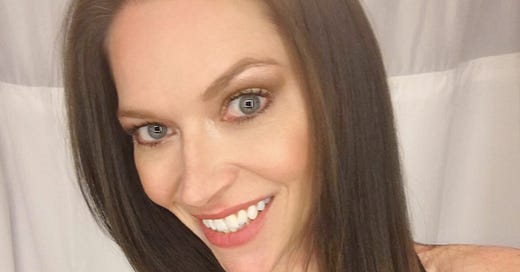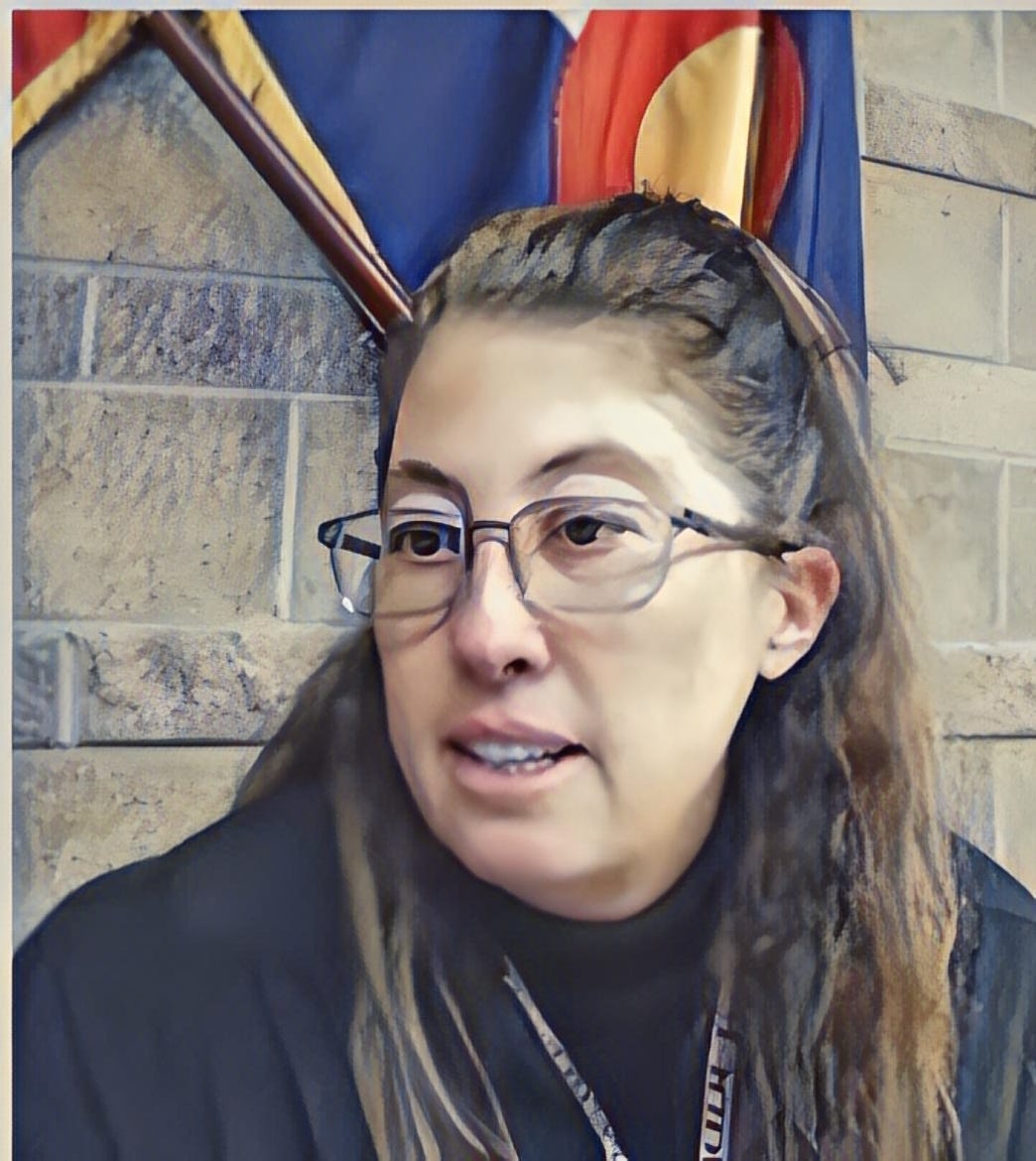Death By Deceit: Cancer-Stricken Kenner Faces Fatal Lockup Due to Ex's Fury!
Prisoner Fights for Life Against Ex's Deceitful Legal Tactics and BOP Systemic Horrors
By Richard Luthmann and Dick LaFontaine
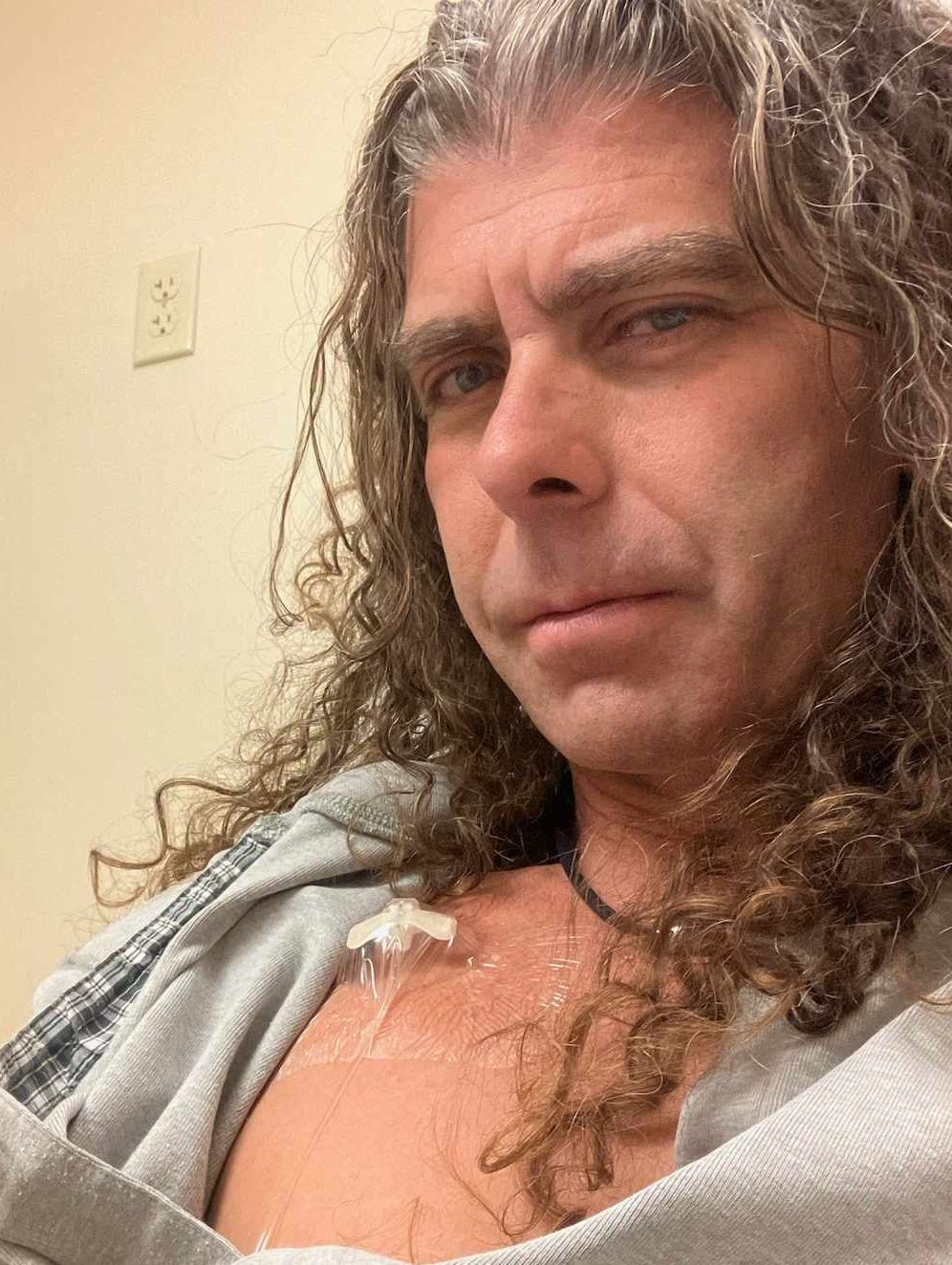
Phillip Kenner has been battling serious cancer for several years. The 54-year-old was a youth and college hockey star who parlayed his success on the ice into a career managing investments for sports stars. He was convicted of white-collar crimes related to investments, including flawed financing of the golf resort Diamante Cabo San Lucas, developed by Ken Jowdy. U.S. Judge Joseph F. Bianco sentenced Kenner to 17 years behind bars. Kenner maintains his innocence.
Kenner was released from federal prison on June 20, 2023. Under the CARES Act, Kenner was permitted to return home from an Englewood, Colorado, prison camp with an ankle monitor because of his serious medical condition and the cancer treatment that he could only receive in the community.
Upon release, Kenner was embroiled in a new conflict. He sought to reclaim his life and health, only to be confronted by an ex-girlfriend’s restraining order. Kenner encountered a slew of baseless accusations, including domestic violence, stalking, and harassment from a woman he supported for a decade while behind bars.
Now, Marlene Grissom might get her way. Kenner faces a death sentence because of her baseless allegations and the Federal Bureau of Prisons (BOP) systemic administrative dysfunction.
Kenner Says ‘Black Widow’ Grissom Wants To See Him Die

Kenner claims Marlene Grissom has exploited the judicial system for personal vendettas rather than out of legitimate fear or domestic violence.
"Grissom's actions, as alleged, represent a calculated and harmful strategy against Kenner," underlining the dire consequences he faces due to her allegations.
He says Grissom wants to see him die. She not only seeks to keep Kenner’s Hummer truck and other property but also wishes to get Kenner “out of the way” so she can continue her affair with Kenner’s boss and landlord, Chris Gioia, which has lasted over three years.
In a recently filed Motion for Reconsideration, Kenner seeks the Eagle County, Colorado, court to reconsider dismissing the Temporary Restraining Order (TRO) and Order of Protection instigated by Grissom. A hearing was held last week in absentia before Judge Inga Causey. The U.S. Marshals never produced Kenner for the hearing. Nonetheless, upon consideration of the allegations and without the benefit of Kenner’s testimony or evidence, Judge Causey dismissed Grissom’s domestic violence and harassment claims. Only a stalking claim remains.
Kenner’s filed papers ask the Court to take another look at the stalking charge. He challenges the validity of the TRO and highlights the dire consequences of its enforcement on his critical health condition. He details the disruption to his cancer treatments resulting from Grissom's actions, showcasing the tangible effects of the legal battle on his well-being. He pleads with the court to recognize the baselessness of the charges against him and the critical need to resume his cancer care, undeterred by legal obstacles instigated by Grissom.
If the TRO is dismissed, Kenner hopes to be released from federal lockup to return to home confinement and regular cancer treatments. But Grissom’s actions may have already created the conditions for Kenner’s “Death Sentence” in Federal custody.
A Troubled Background: Kenner's Fight for Justice and Health
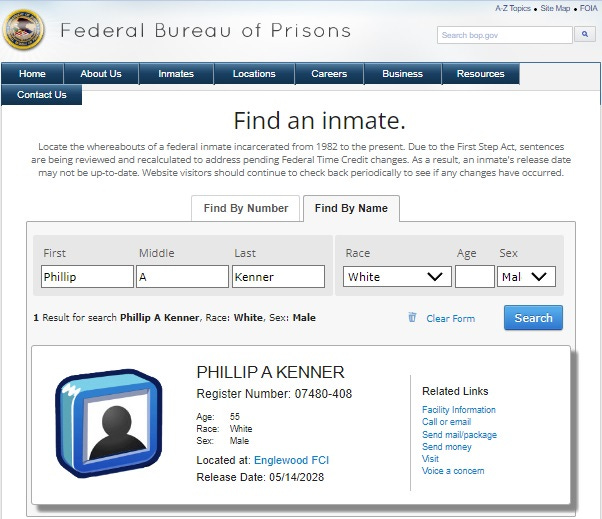
When Grissom left their shared residence in Avon, Colorado, Kenner encountered a slew of baseless accusations, including domestic violence, stalking, and harassment. Grissom filed for the TRO and Order of Protection. He says they were lodged in response to his requests that Grissom return his property, including his Hummer truck.
Kenner says Grissom also wants him out of the way so she can continue her sexual liaison with Kenner’s boss, Chris Gioia, the owner of Ascent Automotive in Avon, Colorado.
Efforts to distance himself and reclaim his belongings were documented. Kenner says the filing is fraudulent and filled with lies. Nonetheless, based solely on Grissom’s allegations, Kenner was remanded to the federal lockup at FCI-Englewood, where he has been for nearly two months.
"On January 31, 2024, I was duly served with a Temporary Restraining Order...following Marleen Grissom's departure [from the residence] on December 22, 2023."
He asserts he had been the sole occupant of the residence even though Grissom listed it on the TRO.
Grissom also listed the Ascent Automotive address as her employer and a “stay-away” location for Kenner. But Kenner’s documents show that Grissom doesn't work at Ascent Automotive. That claim was a lie.
Nonetheless, Grissom called the Eagle County Sheriff to arrest Kenner because he was collecting his personal belongings at the Ascent Automotive shop in early February. He has been incarcerated in BOP custody at FCI-Englewood ever since.
A Love Triange: Gioia, Grissom, and Kenner

Kenner's motion for reconsideration reveals the tangled web of personal and professional relationships that form the backdrop of his legal struggles. The document lays bare the intricate love triangle involving Kenner, his employer and landlord, Chris Gioia, and Marlene Grissom, Kenner's ex-romantic partner.
"Grissom refused to acknowledge that her intimate relationship of two to three years with Gioia, who is my employer and landlord during my probation, endangered me," Kenner states in his filing.
The motion details how Kenner's relationship with Gioia, initially based on employment and housing, became complicated due to Gioia's simultaneous relationship with Grissom.
The papers say, "Grissom's intimate involvement with Gioia, my direct superior and landlord, places me in a precarious position… Grissom's threats aimed at leveraging Gioia against me have not only jeopardized my housing but have also placed my job at Ascent Automotive at risk."
Kenner's motion seeks to underscore the unfairness he faces, entangled in a love triangle that has severe repercussions on his legal standing and access to cancer treatments. He implores Judge Causey to recognize the unusual and adverse circumstances stemming from this intertwined relationship dynamic.
"The overlapping relationships have led to undue prejudice against me, complicating my efforts to comply with probation requirements and maintain employment."
In his plea to the court, Kenner uses direct quotes from his interactions and experiences to illustrate how Grissom and Gioinal animosities and alignments have unfairly influenced his circumstances.
The 'Silver Bullet' Strategy Exposed: Kenner's Plea for Justice

Kenner's motion to the Eagle County Colorado Court underscores Marlene Grissom's alleged misuse of the 'Silver Bullet' strategy. His filing details how this strategy has been leveraged to compromise his legal standing and critically affect his health.
"The 'Silver Bullet' strategy involves the ostensible misuse of domestic violence claims to obtain an undue advantage in civil proceedings...Grissom employed this approach, resulting in my arrest and subsequent detention for alleged violations of federal release conditions."
He argues this tactic has been weaponized against him, devoid of factual basis and fueled by personal animosity rather than legitimate legal concerns.
"Grissom's calculated actions led to my predicament...The 'Silver Bullet' strategy has left me battling not only my severe health condition but also the threat of unjust incarceration… Grissom's misuse of the judicial system has notably jeopardized my access to cancer treatments," the papers say.
He points out the discrepancies between Grissom's allegations and his proven efforts to detach from their tumultuous relationship, secure his belongings, and adhere to legal requirements.
"The court should, therefore, dismiss both the original TRO and the subsequent alleged violation due to lack of substantive merit and evident manipulation of judicial processes," the papers argue.
Kenner aims to expose the alleged exploitation of legal mechanisms and secure a fair reassessment of his case.
Grissom’s Mental Health Issues, Lies, and Attacks on Kenner’s Family
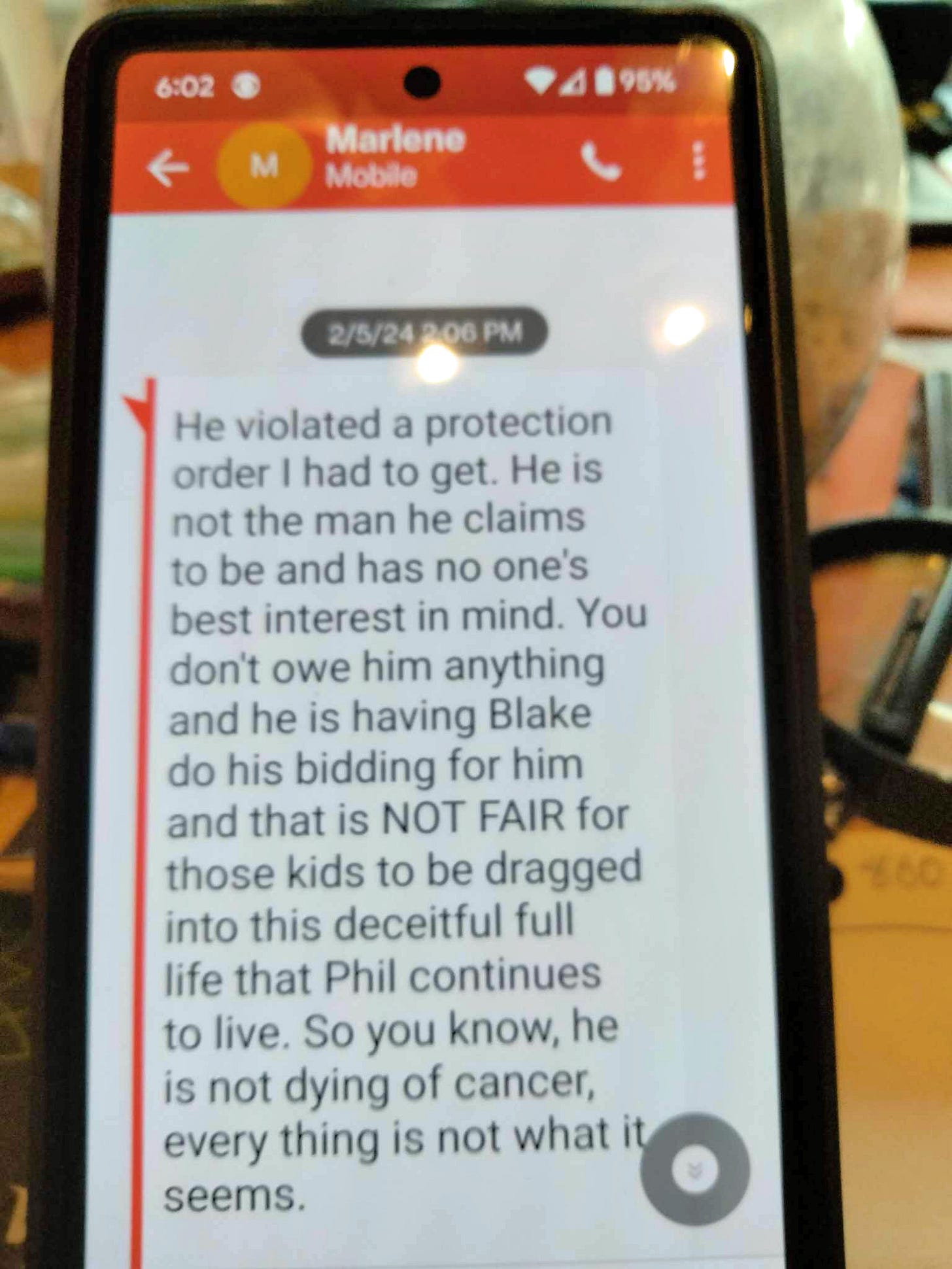
Kenner's recent court filing sheds light on Grissom's troubling behavior, influenced by her mental health struggles and substance use. Kenner details Grissom's erratic actions and deceitful maneuvers following her exit from their shared residence, underpinning his motion with direct quotes and instances of her conduct.
"On December 22, Grissom departed the property under the influence of alcohol and delusional states," the papers say.
Grissom’s departure began a series of calculated actions against Kenner, fabricating claims and leveraging the legal system to his detriment.
Kenner's filing exposes Grissom's attempts to manipulate his family, notably through unfounded allegations regarding his health. Five days after Kenner's arrest, Grissom contacted Kenner's elderly mother to tell her: “so you know, he is not dying of cancer, every thing is not what it seems.”
Grissom’s statements starkly contrast with the medical documentation and evidence of Kenner's ongoing battle with untreated and potentially terminal cancer. FCI-Englewood had previously released Kenner under the CARES Act because of the cancer.
Kenner’s motion sheds light on Grissom’s unwarranted assaults on his children. He underscores his son's ordeal due to Grissom’s machinations, fabricating allegations that led to unnecessary legal trouble.
"Grissom filed a mendacious report with the Avon Police Department, wrongfully accusing Kenner's son of stealing the BMW," the papers say.
This baseless accusation strained his relationship with his son and unjustly embroiled him in legal issues, showcasing Grissom's manipulation and reckless disregard for Kenner’s family.
Kenner’s motion discusses the impact of Grissom’s actions on his medical student daughter, whose affidavit recounts firsthand experiences of Grissom's erratic and unsettling behavior. Haley Kenner’s affidavit states:
[Grissom] told me many stories including how several years ago she was in the hospital for alcohol hepatitis that worsened to the point of a coma for several weeks, after which the doctors informed her she had hepatic encephalopathy that affected her brain and she would have long-term damage from this incidence, with the possibility of it worsening due to the state of her liver if she didn't get a transplant [which she did not]..."
"She shared that she had started taking an antidepressant medication called Lexapro to help with flashbacks and thoughts that the people were going to come after her again, specifically referencing a time where the FBI barged into her home and harassed and interrogated her while she was all alone with no protection…”
“[A]t one point she told me about her recent medical updates including that she decided to stop all of her psychiatric/mood regulating medications, including the Lexapro she took for PTSD, anxiety, and depression. I had asked her if she had worked with a psychiatrist to find another medication that would help her, she stated she was done with psychiatrists…I know she has a history of mental health problems including self-harm..."
"I always had concerns about her not receiving appropriate psychiatric care, especially regarding frequently switching between psychiatrists and medications. Psychiatric medications, especially antidepressants and mood stabilizers, need to be carefully titrated under physician supervision, and should not be stopped abruptly due to the risk of precipitating conditions such as mania. Mania also can occur if someone is not consistently evaluated while on antidepressants, and should not be started if there is concern for other conditions such as bipolar disorder, which I have been concerned about due to her behaviors of insomnia for several days followed by sleeping for days straight, excessive meaningless task switching or fixation such as the midnight search for her hat, and risky behaviors such as stockpiling guns and carrying them on her to the grocery store…"
"It has been upsetting to [my father and I] how much it seems [Grissom’s] mental state has destabilized, and incredibly shocking to see how destructive and delusional her perception of things has become to lead to the actions she has taken now. I hope that she gets the treatment she needs one day, but right now her instability is destroying people's lives.
Kenner’s papers implore Judge Causey to recognize the pattern of Grissom’s behavior, marked by deceit, manipulation, and a blatant disregard for the well-being of his family. He argues for the dismissal of the unfounded legal actions against him, which have compounded his struggle against a life-threatening illness and disrupted the lives of his family members.
BOP Bureaucracy: An Unfolding Legal Drama
Kenner’s legal plight, as submitted to Eagle County Colorado Judge Inga Causey, epitomizes the complex clash between judicial procedures and fundamental human rights, specifically the right to access life-saving medical treatment. This case symbolizes a broader legal conundrum where actions taken within the court and criminal justice system can profoundly influence an individual's health outcomes and fundamental liberties.
This legal battle underscores one man's struggle to access indispensable medical care amid deceit, legal manipulation, and administrative bureaucracy. As Judge Causey and the Eagle County Court deliberate over Kenner's Motion to Reconsider, that outcome is just one of several moving parts.
From the bench, Judge Causey confirmed that she was “handcuffed” in ordering Kenner to cancer treatment because of his status as a federal inmate. The Federal Bureau of Prisons (BOP) lists Kenner as in their custody at FCI Englewood.
But the question must be asked: Why is he in federal lock-up, given his medical needs? And when does he get back to his doctor-prescribed cancer treatment regimen?
The answer might be: Never.
On April 4, 2023, the Final Rules on the CARES Act were printed in the Federal Register. The Final Rule gives the Director of the BOP, Collette Peters, the power to make CARES Act determinations as to whether an individual should remain in home confinement for medical reasons:
For the reasons provided in this final rule, the Department codifies the Director’s discretion to allow inmates placed in home confinement pursuant to the CARES Act to remain in home confinement after the covered emergency period expires. This rule reflects the interpretation of the CARES Act set forth in OLC’s December 21, 2021, opinion, is consistent with recent legislation from Congress supporting expanded use of home confinement, and advances the best interests of inmates and the Bureau from penological, rehabilitative, public health, and public safety perspectives.
The BOP has recently come under fire for its “systemic horrors.” BOP Director Collette Peters has promised an “overhaul.”
However, Kenner now returned to FCI-Englewood, is unlikely to be released back to home confinement and access to necessary cancer treatment, even if he succeeds before Judge Causey. That’s because the BOP Director’s CARES Act policy is to leave the CARES Act decision to the Warden of the inmate’s facility. And FCI-Englewood Warden J.F. Williams is notorious for denying CARES Act requests and retaliating against prisoners who make them.
Over the last several years, the public has been repeatedly informed of rogue BOP actions, including a culture of government employees who believe they are not required to follow the law. Warden J.F. Williams is yet another example.
Does FCI-Englewood Warden J.F. Williams Want To See Kenner Die?
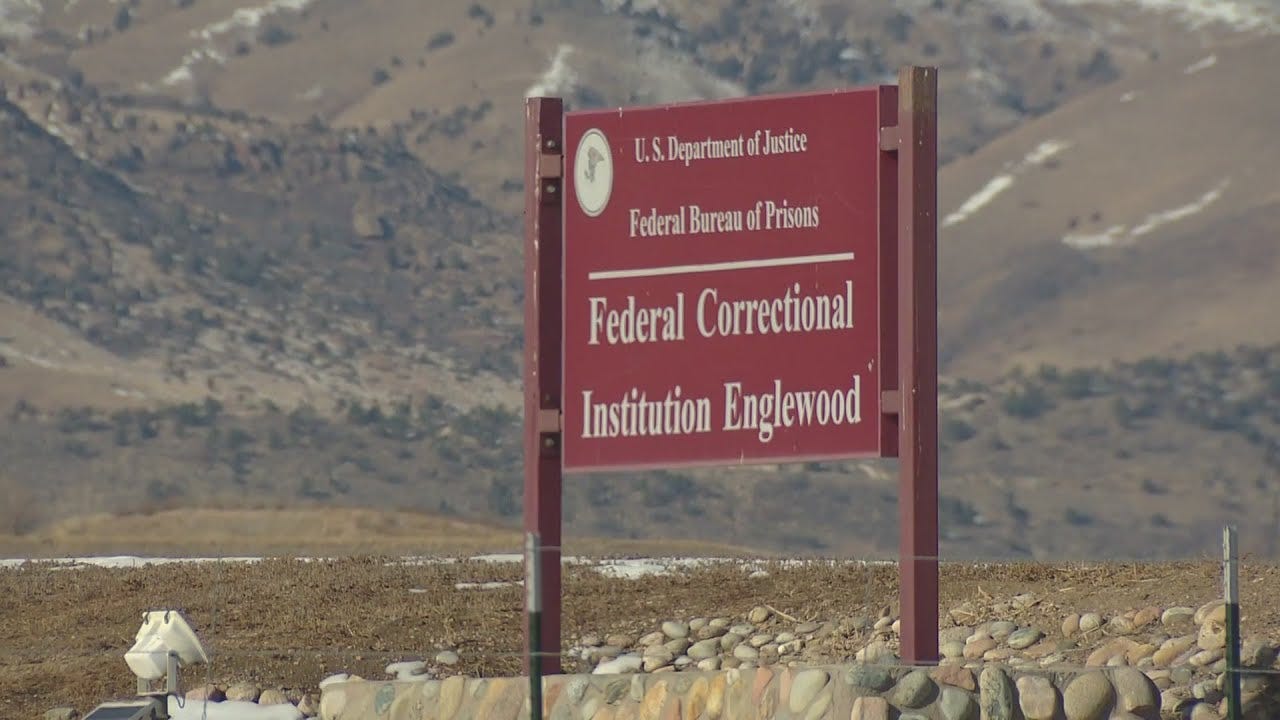
The short answer is probably. A source close to FCI-Englewood said that Warden Williams was not inclined to release Kenner back to home confinement, even if Grissom’s claims are baseless. Warden Williams believes in the orderly administration of his prison, even at the expense of the preventable medical death of an inmate.
According to the source, Warden Williams believes Kenner already “had his chance” and “never should have gotten himself in that situation [with Grissom].”
Kenner is a low-risk, white-collar inmate who provides minimal risk to the community. But Warden Williams has engaged in a pattern of denying low-risk prisoners any of the relief afforded by Congress under the CARES Act, the First Step Act, and the Second Chance Act. He has been named in numerous prisoner lawsuits in Colorado Federal Court. The claims are all the same: Low-risk inmates at Englewood serve more time than Congress has provided.
The BOP has the authority to decide on the transfer of prisoners within its jurisdiction, including the option of home confinement. However, this authority is not without limits. FCI-Englewood previously adopted a local institution policy against granting any form of home confinement. Warden Williams's “no home confinement” policy violates the CARES Act, Congressional Intent, and the Code of Federal Regulations.
The law mandates that the BOP's decisions must be grounded in factors established by Congress rather than on the arbitrary preferences of local administrators. The Tenth Circuit, which includes Colorado, where FCI-Englewood is located, addressed this issue in 2007. In Wedelstedt v. Wiley, 477 F.3d 1160, 1162 (10th Cir. 2007), the Court of Appeals emphasized that BOP must adhere to specific criteria set by Congress in 18 U.S.C. §3621(b) when making transfer decisions. These decisions should be personalized, and the unique situation of each inmate applying for a transfer should be considered.
However, Warden Williams has already signaled that he is well within his discretion to place Kenner in a “Low Security” prison instead of home confinement or a prison camp because of all the “trouble” he has already caused. In such a secure facility, access to life-saving cancer treatment will be difficult. And even if Kenner is taken out of the facility for treatment, he would have to endure chemotherapy in prison shackles as per BOP regulations.
Does Kenner Have Any Recourse?
Now that Kenner is returned to BOP custody, he could file a pro se habeas corpus petition under 28 U.S.C. §2241, challenging the FCI-Englewood warden’s refusal to consider him for CARES Act home confinement. However, this is a long, time-consuming process. Kenner is required to exhaust administrative remedies with the BOP, which could take six months. Then, he would have to maneuver the procedural nuances in Colorado Federal Court, where Judges have quickly dismissed habeas corpus petitions for technical and procedural reasons to avoid the merits.
But does Kenner have a year? Does he even have months? Without proper cancer treatment, the answer is no. Kenner’s family has conveyed that his physical condition is worsening every day. He has already lost feeling in his feet and toes and is in substantial bodily pain.
Kenner’s case emphasizes the urgent need for a judicial system that prioritizes compassion, truth, and the sanctity of life over procedural misapplication, administrative technicalities, and personal vendettas.
The Constitution says Phillip Kenner has access to essential health care. Congress, the Code of Federal Regulations, and case law say that Kenner should receive his cancer treatment within the community, whether in home confinement or a half-way house.
Instead of justice or the rule of law, Colorado state and federal bureaucrats play God.
As imbalanced as she appears, Marlene Grissom seems “crazy like a fox.” She knew that if Kenner were returned to the custody of the criminal justice system and a dysfunctional BOP, his life expectancy would fall to nil. With the help of several layers of administrative bureaucracy, she executed the “Silver Bullet” to perfection.
In 1986, President Ronald Reagan famously said, “The nine most terrifying words in the English language are ‘I'm from the government, and I'm here to help.’ "
In 2024, Reagan’s adage can be updated to: “We’re from the government, and we’re here to help you die.” At least for Phil Kenner.


